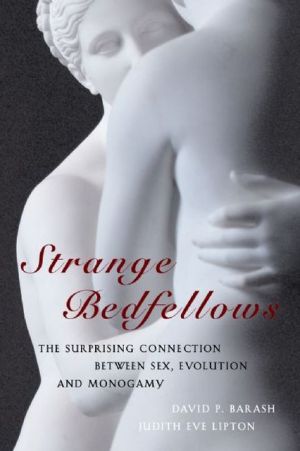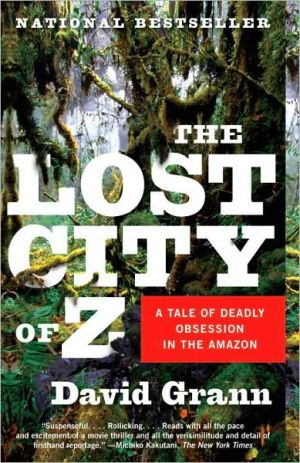Strange Bedfellows: The Surprising Connection Between Sex, Evolution and Monogamy
In The Myth of Monogamy, husband and wife David P. Barash (an evolutionary biologist) and Judith Eve Lipton (a psychiatrist), stunned the public by showing how rare monogamy is in nature. Now, in Strange Bedfellows, they look at the other side of the coin: how biology actually promotes monogamy in some species and how these lessons apply to human beings.\ An accessible work of science that is relevant to our intimate daily life, Strange Bedfellows will reassure some people, surprise others,...
Search in google:
A husband and wife team make the science of monogamy sexy. Publishers Weekly A decade after they published The Myth of Monogamy: Fidelity and Infidelity in Animals and People, husband-and-wife evolutionary scientists Barash and Lipton make a strong case for the benefits and joys of monogamy even for people, like themselves, "who take biology seriously." Until quite recently, they report, "three-quarters of all human societies were polygamous," and the advent of DNA testing shows that birds have a similarly wandering eye: "sometimes 30 or 40 percent of nestlings ... are not genetically related." While promiscuity seems built into our genes, there is a longer legacy of serial monogamy ("the likelihood... is that only a few well-positioned males succeeded in polygamy") and genetic payoff for two-parent households (feeding, warming, and protecting the young) than numbers might suggest. Humans especially benefit from reciprocity and "monogamy is the ultimate friendship," with the biggest payoff, not just in reproduction but "physically, intellectually, emotionally economically, socially ... in a word, biologically." Everything from infant-mother attachment to neuroplasticity to "mirror neurons" to hormones form the biological framework for adult love. With wit and intelligence, Barash and Lipton provide a rational, scientific look at the seemingly irrational business of falling and staying in love. Copyright © Reed Business Information, a division of Reed Elsevier Inc. All rights reserved.
\ Publishers WeeklyA decade after they published The Myth of Monogamy: Fidelity and Infidelity in Animals and People, husband-and-wife evolutionary scientists Barash and Lipton make a strong case for the benefits and joys of monogamy even for people, like themselves, "who take biology seriously." Until quite recently, they report, "three-quarters of all human societies were polygamous," and the advent of DNA testing shows that birds have a similarly wandering eye: "sometimes 30 or 40 percent of nestlings ... are not genetically related." While promiscuity seems built into our genes, there is a longer legacy of serial monogamy ("the likelihood... is that only a few well-positioned males succeeded in polygamy") and genetic payoff for two-parent households (feeding, warming, and protecting the young) than numbers might suggest. Humans especially benefit from reciprocity and "monogamy is the ultimate friendship," with the biggest payoff, not just in reproduction but "physically, intellectually, emotionally economically, socially ... in a word, biologically." Everything from infant-mother attachment to neuroplasticity to "mirror neurons" to hormones form the biological framework for adult love. With wit and intelligence, Barash and Lipton provide a rational, scientific look at the seemingly irrational business of falling and staying in love. \ Copyright © Reed Business Information, a division of Reed Elsevier Inc. All rights reserved.\ \








